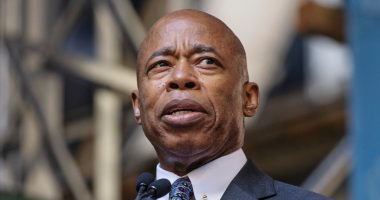
Officials in a Chicago suburb on Monday said that their city would dismiss citations that it had issued to a local news reporter in late October after he persistently contacted elected officials about a flooding issue.
The Daily Southtown, a regional newspaper owned by the Chicago Tribune Media Group, the parent company of The Chicago Tribune, published an article by Hank Sanders about consultants informing officials in Calumet City, Ill., that storm water facilities were in “poor condition” before a flood swept through the community in September.
Mr. Sanders, the reporter, continued to inquire about flooding issues after the article was published. His calls and emails drew complaints from Calumet City officials, including Mayor Thaddeus Jones, a Democrat who is also a state representative.
On Oct. 30, Calumet City, just south of Chicago, sent three notices to Mr. Sanders, saying that he had violated local ordinances. The city cited “interference/hampering of city employees” as the offense, as reported by The Chicago Tribune this month.
The violation notices stated that Mr. Sanders sent 14 emails in a nine-day period. Mr. Sanders said in an interview that he had sent them to four or five different people during that time period.
“Despite all FOIA requests being filled, Hank Sanders continues to contact city departments and city employees via phone and email,” one of the violation notices stated, referring to the Freedom of Information Act. “Despite request from Calumet City attorneys to stop calling city departments and employees, Hank Sanders continues to do so.”
But on Monday, Patrick Walsh, the Calumet City prosecutor and special counsel, wrote in an email to the Chicago Tribune Media Group’s lawyer that the citations would be dismissed.
“I do not want to prolong this simply because you sent a flexing lawyer letter over the weekend,” Mr. Walsh said, adding: “As you know, I was not a witness and have no interest in bickering about it.”
Mr. Walsh said in the email that city employees felt “harassed” because Mr. Sanders kept contacting them after they had expressed that they didn’t want to speak to him. Mr. Walsh also said in the email that he and Mr. Sanders had had a “nice conversation” over the phone.
Mr. Sanders said in an interview on Monday afternoon that he was glad to put the issue behind him and looked forward to continuing to cover the city.
“I’m just happy both sides were able to get to an understanding and resolve this process without too much pain,” Mr. Sanders said. “Reporters don’t like being the center of the stories, so I am happy that I can go back to my job.”
Mitch Pugh, executive editor of The Chicago Tribune, echoed this sentiment.
“Obviously we don’t feel like this should have ever been an issue we should have had to contend with,” Mr. Pugh said. “We will continue to monitor the situation and support Hank as he does his job.”
The summons issued on Oct. 30 requested that Mr. Sanders appear in court. It was unclear if there were fines associated with the citations; there were none listed on the forms, but Chicago Tribune lawyers said that the maximum fine for each citation was $500, said Mitch Pugh, the newspaper’s executive editor.
“It’s clearly an attempt to intimidate and interfere with his reporting,” Mr. Pugh said before the citations were dismissed.
The episode was among a series of recent quarrels between city officials and local news organizations across the country that have raised questions about the role of a free press as enshrined in the First Amendment of the Constitution.
In late October, a newspaper publisher and reporter in Atmore, Ala., were arrested after being accused of disclosing grand jury evidence in the investigation of a school board’s handling of relief funds. In August, the police raided a newspaper’s office in Marion County, Kan., and the home of its owner, in connection to an investigation about how a government record concerning a local restaurant owner was obtained by the publication.
It’s essential that news organizations speak out against First Amendment infringements such as these, said Don Craven, who is the president, chief executive and general counsel of the Illinois Press Association.
“Newspapers have two ways of fighting back: One is litigation and the other is newsprint and ink,” Mr. Craven said. “We have more of that than anybody else. We have to use it.”
The case involving Mr. Sanders was not of the same magnitude as other recent actions by local governments to curtail press operations, but “a part of the same trend,” Mr. Pugh said.
Source: | This article originally belongs to Nytimes.com









